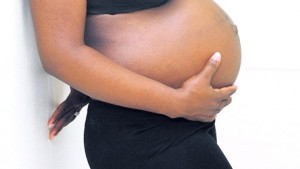 PREGNANCY is supposed to be a joyful time — a time of peace and safety. But this is not so in all cases, as some expectant mothers have to endure domestic abuse.
PREGNANCY is supposed to be a joyful time — a time of peace and safety. But this is not so in all cases, as some expectant mothers have to endure domestic abuse.
According to Dr Daryl Daley, obstetrician-gynaecologist at Gynae Associates, domestic abuse refers to the physical, psychological, emotional, sexual, verbal and financial exploitation which is meted out by a spouse to his or her partner.
Dr Daley explained that in pregnancy, the woman is usually on the receiving end of abuse that is bound to have a detrimental effect on her and her unborn child.
Sadly, Dr Daley revealed that women tend to suffer increased domestic abuse during pregnancy. He said local statistics are limited, but in the United Kingdom, one in four women experiences domestic abuse in her lifetime — 30 per cent beginning in pregnancy.
“Between four to nine women in every 100 are abused during their pregnancies and/or after birth, therefore suggesting that it is quite a common event,” he said.
However, Dr Daley said while abuse affects every class in society, what’s common is that most women tend to hide from their health professionals the fact that they’re being abused.
“They may hide because they feel ashamed, they fear their partner, the health professional has a hurried or hostile attitude during consultation, or the health professional failed to pick up on appropriate cues and did not go into detail about the woman’s well-being,” he said.
With regards to the effects of domestic abuse on pregnancy, Dr Daley said apart from the abused woman, the unborn baby is harmed, particularly if the woman receives trauma to the abdomen.
“Such attacks can cause foetal fractures and injuries to or ruptures of the pregnant woman’s uterus, liver or spleen,” he said.
He said it is the norm for pregnant women to receive physical trauma to the breasts, abdomen and genitals when physically abused, so it is important for health professionals to examine these areas once it is suspected that the woman is a victim of abuse.
The ObGyn said abuse is also linked to an increased risk of miscarriage, low birth weight, foetal injury, and foetal death. He further explained that other complications include bleeding in pregnancy, risk of premature labour, irritable bowel syndrome and increased risk of vaginal infections.
How does domestic abuse affect labour? Dr Daley said patients who are victims may not tolerate labour well, even on receiving adequate pain relief.
“Their personas may range from being very passive to that of having extreme terror where the thought of delivering the infant allows them to revisit negative experiences, especially in the setting of a history of sexual abuse,” Dr Daley said.
During the postpartum period, Dr Daley explained that domestic violence is usually at its highest, and mentioned that women who experience abuse during the antenatal period are at increased risk of abuse during the postpartum period.
The effect of this, according to Dr Daley, includes poor maternal bonding, neonatal illtreatment and also an overall deterioration in the health and well-being of the mother.
According to the ObGyn, women who are being abused tend to miss clinic appointments often, are usually withdrawn in the interview with the doctor, and if the spouse is present, the spouse dominates the interview.
Dr Daley said these women may also tend to misuse drugs such as alcohol and cigarettes, which may lead to further complications of pregnancy such as stillbirth and low birth weight infants. He said examination may reveal trauma to the breasts, abdomen and genitals, and noted that abused women often have a history of repeated admissions to the hospital for trivial causes in an attempt to escape their abusive spouses.
Moreover, while there is no substantive reason as to why women would stay in abusive relationships, Dr Daley said most reasons he has seen include fear, finances, faith and forgiveness.
On the question of managing abuse, he said the aim is to ensure that abuse is identified and to protect the safety of the mother and baby.
“These women are prone to depression. It is essential that a multidisciplinary approach is taken with that of the social worker, the psychiatrist, specialist midwife, paediatrician and the ObGyn,” he said. “The social worker will liaise with the police and can aid in finding a suitable facility to accommodate the mother and her family for safety. Sometimes admission may be necessary as a temporary means of safety and to ensure all specialities are available to the mother and she is thoroughly reviewed.”
Dr Daley said while most women shy away from revealing abuse, it is important that you share with your ObGyn for the betterment of not only your baby’s health, but yours as well.
